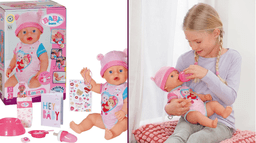Knew it.
Have a younger brother? After enduring years of Chinese burns and tattling from him, you now have scientific proof that he's more likely to be a trouble-maker than you.
Second-born children are more prone to causing trouble than the oldest child, but only if the second-born is a boy, according to a report on a study at MIT.

Researchers examining delinquency looked at data from thousands of families in Florida in the US and in Denmark.
They found that despite how different these two areas are, second-born boys are 20 to 40 per cent more likely to be disciplined in school and enter the criminal justice system.
According to Joseph Doyle, an economist and one of the report's authors, it comes down to who the second-born looks up to.
“The firstborn has role models, who are adults. And the second, later-born children have role models who are slightly irrational 2-year-olds, you know, their older siblings," he said, reports Mommyish.
Finally you can now go to your mum with scientific evidence that you're better than your younger brother.
Still, it probably won't make difference to your standing in the family as
another study about parents' perceptions previously showed that the youngest tends to be the favourite child.

Researchers Susan M. McHale and
Alexander C. Jensen concluded that younger siblings tend to be the favourite largely because they see themselves as the favourite.
McHale and Jensen "anticipated that youth who perceived themselves as favoured would develop better relationships with their mothers and fathers" and they "expected that these patterns would be stronger for secondborns," according to the study.
"In all four models when secondborns perceived themselves as favoured in terms of receiving less discipline, both mothers and fathers reported more positive relationships," it stated.
The research points to a sort of self-fulfilling prophecy whereby younger children who believe they're the favourite get on better with their parents and are more likely to actually
become the favourite.



 Researchers examining delinquency looked at data from thousands of families in Florida in the US and in Denmark.
They found that despite how different these two areas are, second-born boys are 20 to 40 per cent more likely to be disciplined in school and enter the criminal justice system.
According to Joseph Doyle, an economist and one of the report's authors, it comes down to who the second-born looks up to.
Researchers examining delinquency looked at data from thousands of families in Florida in the US and in Denmark.
They found that despite how different these two areas are, second-born boys are 20 to 40 per cent more likely to be disciplined in school and enter the criminal justice system.
According to Joseph Doyle, an economist and one of the report's authors, it comes down to who the second-born looks up to.
 Researchers Susan M. McHale and
Researchers Susan M. McHale and 









